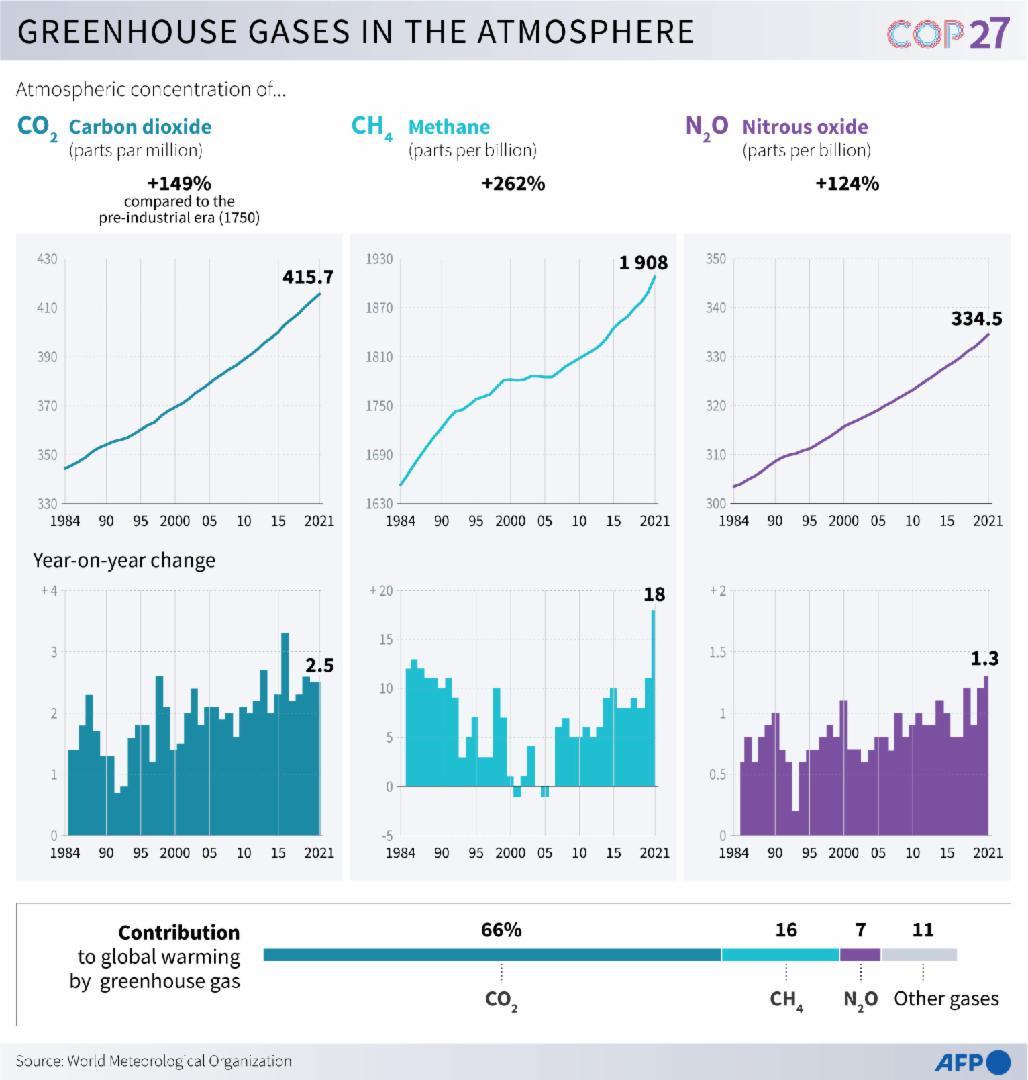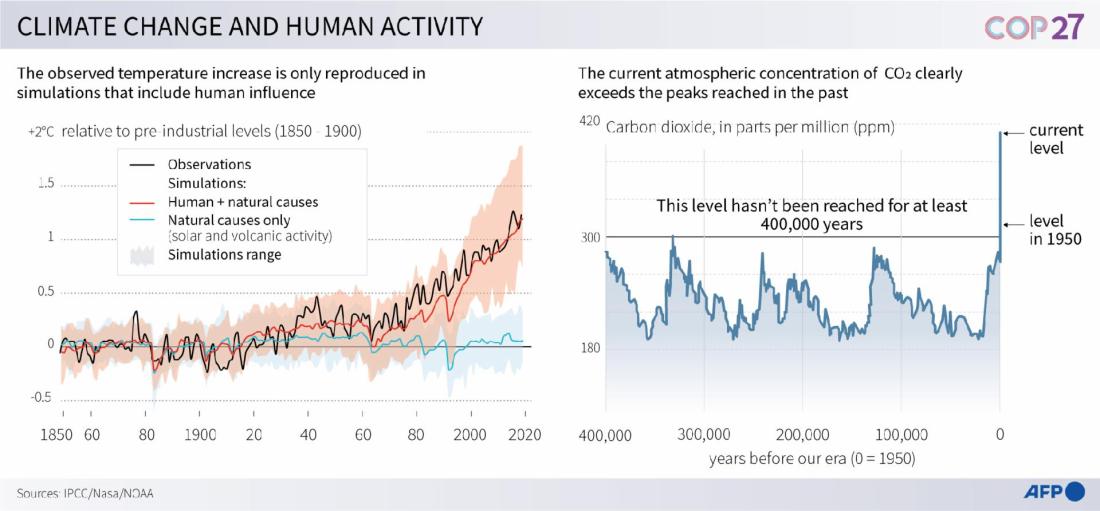
Debunked CO2, climate claim resurfaces online
- This article is more than two years old.
- Published on May 31, 2023 at 21:57
- 4 min read
- By Roland LLOYD PARRY, AFP USA
The clip, shared May 26, 2023 on Instagram, stems from a May 2019 episode of the Australian Broadcasting Corporation (ABC) show "Q&A." In it, Alan Jones asks a fellow panelist what percentage of the atmosphere consists of CO2.
"It's 0.04 percent -- and of that 0.04 percent, human beings around the world create three percent," he says. "And of that three percent, Australia creates 1.3 percent."
He continues: "So for the 1.3 percent of the three percent of the 0.04 percent, we then decide to have a national economic suicide."
The same clip was previously shared on Facebook, Twitter and TikTok.

The figures Jones cited are roughly accurate, but his comments omit the fact that emissions such as CO2 have an outsized effect on climate change.
"While these greenhouse gases make up just a tiny percentage of our atmosphere, they play major roles in trapping Earth's radiant heat and keeping it from escaping into space, thereby warming our planet and contributing to Earth's greenhouse effect," NASA says on its website (archived here).
Numbers not the full story
Stefan Rahmstorf of the Potsdam Institute for Climate Impact Research said in a 2019 article that climate deniers often cite "the small figure of 0.04 percent ... to suggest that the effect of CO2 on the climate must also be small."
That number matches what scientists have widely documented as the level of CO2 in Earth's atmosphere (archived here).
The 1.3 percent figure Jones cited also appears to correspond to Australia's share of global greenhouse gases (archived here). Other data (archived here) indicate the figure for CO2 at the time of ABC's broadcast was slightly lower at 1.12 percent.
The origin of Jones's claim that human-caused emissions are responsible for about three percent of atmospheric CO2 is unclear. However, the number is not far off Intergovernmental Panel on Climate Change (IPCC) data (archived here) that indicate pollution from fossil fuels represents about five percent.

However, scientists say the figures fail to take into account the fact that human-generated emissions are not absorbed as part of the natural CO2 cycle. Instead, they add more of the compound to the atmosphere, warming the planet in the process, and stay in the atmosphere for years.
Scientists track changes in greenhouse gas concentrations by measuring the balance of emissions from different sources in the atmosphere. This includes carbon discharged and absorbed by both natural and human-caused processes.
Chris Jones, an expert on carbon cycles at the United Kingdom's Met Office weather service, previously told AFP that although the percentage was small, "human activity is entirely responsible for the imbalance" that leads to global warming.
Emissions increase CO2, warming
The US National Oceanic and Atmospheric Administration (NOAA) has tracked the acceleration of CO2 in Earth's atmosphere (archived here) over the past half-century.
The concentration of the greenhouse gas has risen from around 280 parts per million (ppm) in the 1850s to more than 400 ppm (0.04 percent), according to the agency. NOAA data (archived here) also show how atmospheric CO2 has increased alongside a surge in human-caused emissions.
Six organizations have tracked the resulting rise in global average temperature (archived here).

A 2021 IPCC report (archived here) details how different gases contribute to "radiative forcing," the process by which more heat from the sun enters the Earth's atmosphere than leaves it. The report identified "a near-linear relationship" between CO2 emissions and recent global warming.
Investigative site DeSmog has documented how Jones, a former rugby coach turned radio figure, has repeatedly denied the science of human-caused climate change. Posts resharing his claims are the latest to make it seem as if the concentration of human-caused CO2 in Earth's atmosphere is too small to drive global warming, assertions that AFP has previously fact-checked in multiple languages.
Australia has promised to drastically cut carbon pollution by 2030 and to achieve net-zero emissions by 2050. The country's strategy involves reducing reliance on coal, as well as boosting renewable energy sources and the use of electric vehicles.
AFP has fact-checked other false and misleading claims about climate change here.
Copyright © AFP 2017-2026. Any commercial use of this content requires a subscription. Click here to find out more.
Is there content that you would like AFP to fact-check? Get in touch.
Contact us




